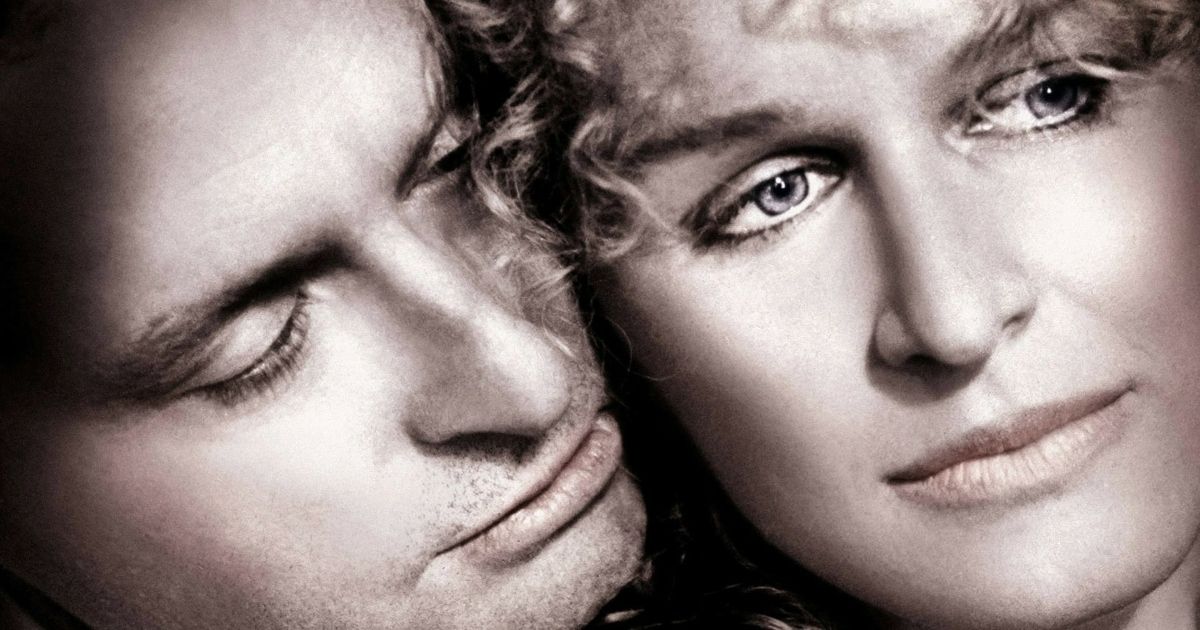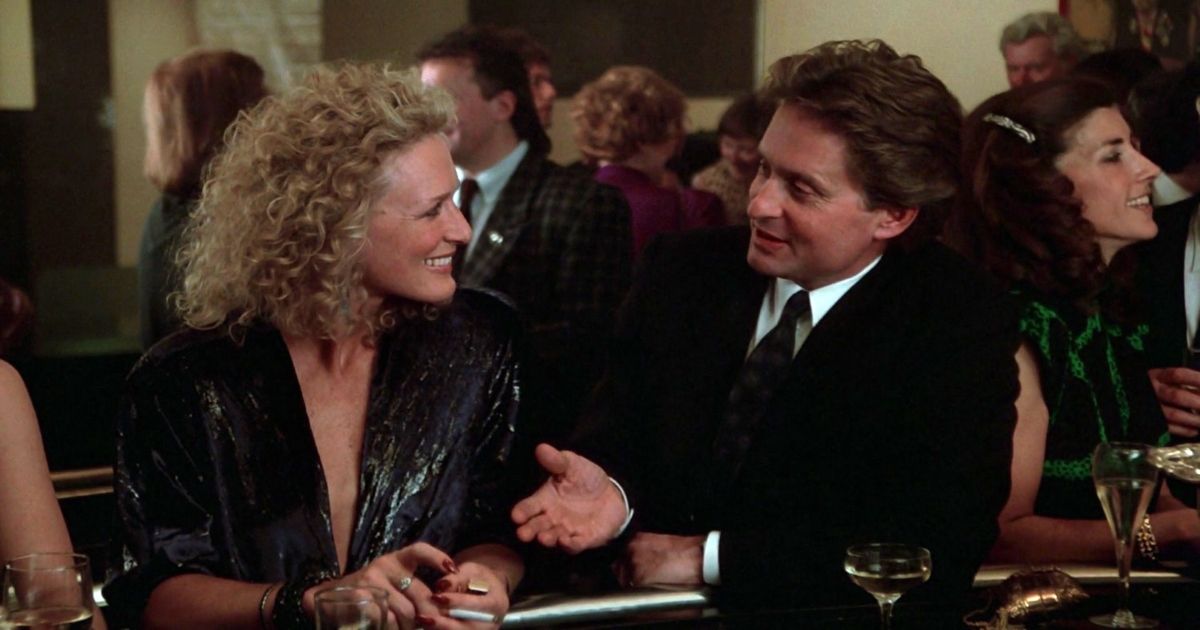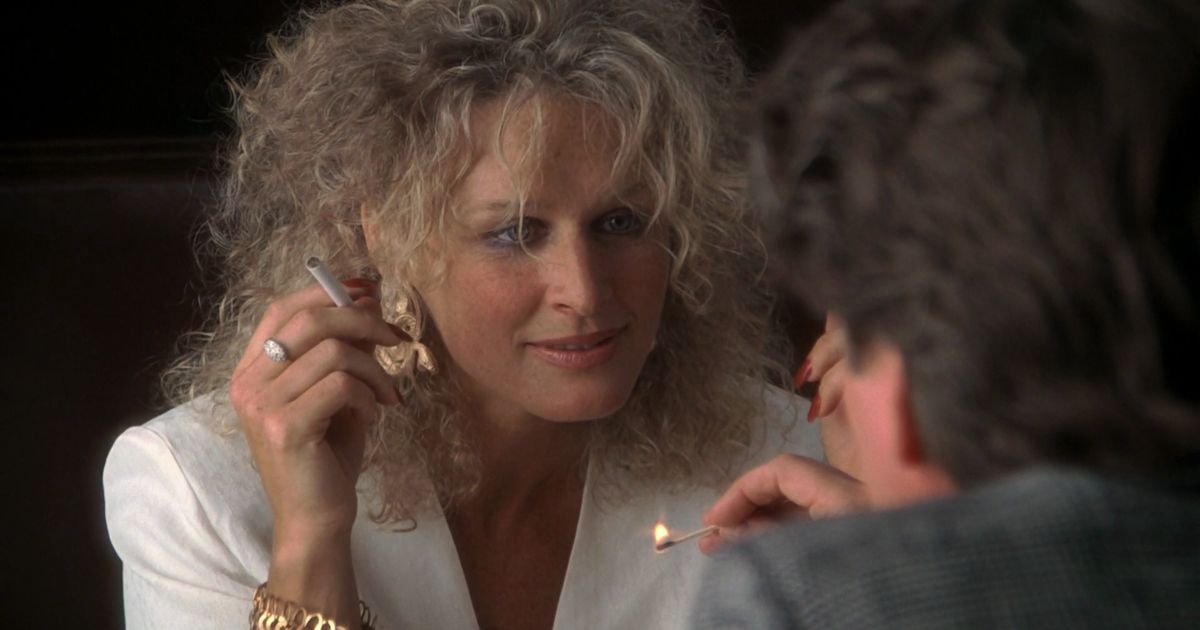The '80s were the time of big money, big tech, and big hair. Rock n' Roll became hair metal. Toaster-sized car phones, television sets, and personal computers were commonplace. The United States took aim at communism in the Soviet Union and The War on Drugs, led by our movie-star President Ronald Reagan. A raucous time of entertainment, advancement, and sociopolitical consequence were the hallmarks of the decade of excellence and moderation.
Fatal Attraction is a time capsule movie of this era. The second highest-grossing film of 1987 explored the Reagan era through the lens of seedy and greedy New York. Tensions to perform as an economically viable citizen, to earn at any cost (sometimes at the expense of others), takes a nose-dive from the social sphere to the private sphere in American society. The roles of the sexes are also challenged; in particular the transformation from the traditional stay-at-home wife to the working new woman. Sexual, professional, and personal facets of life were bleeding over into each other during the eighties and Fatal Attraction makes those facets still prevalent today.
Just the Two of Us
The psychological thriller sees well-to-do lawyer and family man Daniel Gallagher (Michael Douglas) with an editor at a publishing company, Alexandra Forrest (Glen Close). The first thing they share is professional. He meets her at a promotional function where his coworker makes eyes at her. Dan later runs into her at the bar, introduces himself and apologizes for his friend, the fact that he has to get back to his wife, and makes a smooth exit.
After the events of the party, Alex's author is in a defamation case about one fictional character having an affair with a fictional political figure in her book. The case is in favor of Dan's firm, which gets Alex closer to Dan. Dan is later seen outside in the rain, trying to unsheathe his umbrella (euphemism and innuendo alert), but he is just a hop, skip, and a jump away from Alex, who covers him under her umbrella. The two decide to discuss the case further out of the rain and over a few drinks. Slowly but surely, boardroom eyes become bedroom eyes after Dan tells Alex that his family are out of town for the weekend.
Crossing Boundaries
Head over heels, the American Psycho Alex begins to encroach on the nuclear family dynamic Dan puts in jeopardy. A trauma bond ensues when Alex attempts suicide. Her drastic measure came after listening to Dan share the only time he was comforted by his father, when he watched a performance of the Italian opera Madame Butterfly in which a woman decides to kill herself. Events from Madame Butterfly mimic the events in the film.
In the opera, a marriage between a careless American man and naïve Japanese girl takes place. Unbeknownst to the girl, the man has married her out of convenience as he plans to leave her shortly for an American woman. For Dan, the affair is only for fun and his second mistake was thinking Alex did too. Despite Dan being married, Alex becomes increasingly smitten with him to the point of obsession. To keep the connection going, Alex lies and stalks her way into his life, completely blinded by love, or at least her manipulative definition of it.
Better Than Sex
Fatal Attraction depicts a power-mad love; one of control, conscience, and regret (Dan) and one bordering on narcissism out of symptoms of abuse, neglect, and revenge (Alex). It's important to note how love has been manipulated by both in their affair. Close seduces Douglas as a succubus would, and the high of ecstasy takes them over. Douglas, realizing he had too much fun, forgets his nuclear family life and returns to logic in an imperfect world. He even discovers how disturbed Alex is with hints of her past trauma, after he spies and snoops on her in return.
Close defies ethos while hypocritically using it as a means to salvage her invested emotions in a connection doomed from the start. She lives in the safety of intimacy which takes on ironic and irrational maladaptive consequences when she forces her hand to keep it. Fatal Attraction shows a dichotomy between the sexes: women have sex with their heart and men have sex with their body. This is not always the case, but both men and women have their own dirty laundry, insecurities, and desires they bring to each other haplessly instead of constructively.
Fatal Attraction is less a battle of the sexes and more of a tragic display of both sexes inner demons, constrained by societal expectations and escalated by untreated mental health. The imaginary lines we call civil and safe are erased by the possibilities and realities of declension anyone is capable of. From carefree infidelity to lustful stalking to parasitic, predatory love, both Douglas and Close give performances appropriate for the time and unfortunately appropriate for any time a relationship goes to the dogs. Or rabbits.



-Not-Going-to-Be-Ignored.jpg)
